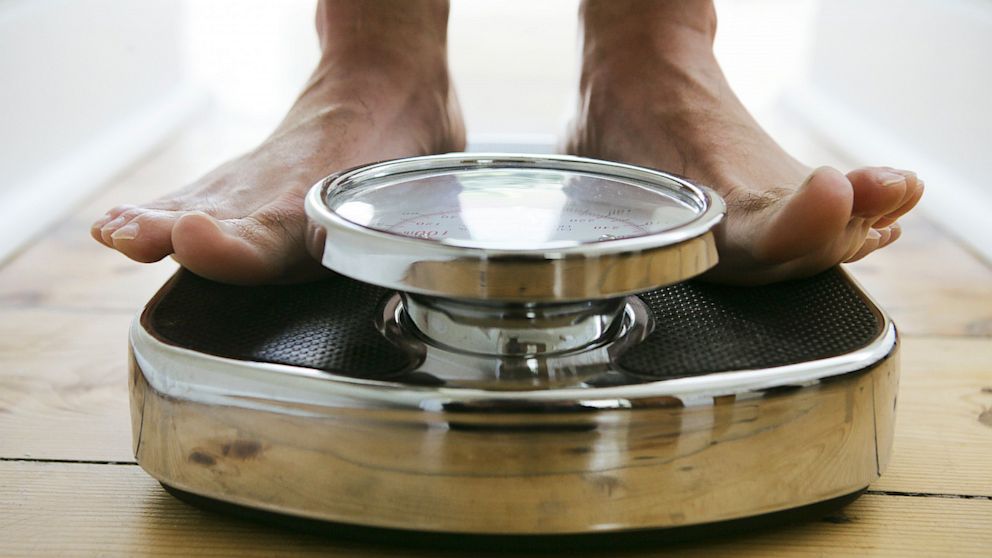4 Confusing Weight Loss Concepts Cleared Up
Bottom line advice to help you lose weight.

Sept. 9, 2013— -- intro: Recently a family friend said to me, "Weight loss is so confusing, I just feel like giving up!" Unfortunately I hear that a lot, and I totally get it. The truth is, while some of what you hear is based on new research, many weight loss trends are just that–trends designed to generate buzz, sell products, and keep consumers "tuned in."
In my opinion, the best way to navigate the ever-changing weight loss landscape is to find an expert you trust, to help you sort out fact from fiction and hype from help. That's exactly what this post is all about. Here's the real deal about four of the most confusing weight loss concepts I'm asked about often, and my bottom line advice.
25 Diet-Busting Foods You Should Never Eat
quicklist: 1category: Confusing Weight Loss Concepts Clarifiedtitle: Water weighturl: text: You may have heard that when you lose weight quickly, it's mostly water weight. That's true, and here's why: when you step on a scale, it measures not just body fat and muscle, but also bone, organs (like your lungs, heart and liver), bodily fluids, waste inside your digestive system you haven't yet eliminated, and glycogen (the form of carbohydrate you sock away as a back up fuel, which is stored with water).
The last three (fluid, waste, and glycogen) always fluctuate, but can shift quickly and drastically when you change your diet. For example, going on a low carb diet, or cutting your carbs way back, triggers the loss of glycogen and the water stored with it, and if extreme, can also be dehydrating. Just two cups (16 oz) of water weigh one pound, so shedding fluid fast can result in weighing a lot less on the scale.
Changes in actual body fat on the other hand don't happen so quickly. Scientists have always estimated that in order to lose one pound of fat, you have to create a 3,500 calorie deficit. So to shed just one pound of body fat in a week, you need to burn off 500 more calories than you take in every day for seven days, or cut your intake by 250 and burn off an additional 250. Trouble is, your body is much more complicated than simple math, so the formula doesn't always hold true.
I've had many clients actually hit weight loss plateaus because they ate too little, exercised too much, and as a result, brought their metabolisms to a screeching halt. That said, even if the formula was spot on, you'd have to spend over seven hours on the elliptical to drop one pound of fat–a much tougher task than what it takes to shed 16 ounces of H2O.
Bottom Line
Don't get too caught up in numbers. While quick loss can boost confidence and stick-with-it-ness, don't rely on the scale as your only measure of success. Go by how you feel, and how your body looks – regardless of the numbers–and focus on a long-term strategy that allows you to safely and sanely lose fat. And keep in mind that a body that's leaner (less body fat), more toned, well-nourished and hydrated will weigh more than one that's thinner but flabby, undernourished, and dehydrated.
Are You Making These Dieting Mistakes?
quicklist: 2category: Confusing Weight Loss Concepts Clarifiedtitle: Brown vs. white faturl: text: There have been a handful of news items recently about how brown fat may help fight obesity. And while the research is certainly intriguing, there are still many unanswered questions. What we do know is there are two types of fat in our bodies: white and brown.
Brown fat has a richer blood supply and is packed with more mitochondria, the tiny furnaces inside cells that burn calories. When we're born, we have more brown fat to keep us warm. Scientists always thought it diminished with age, but through high tech imaging, researchers recently discovered that adults still have brown fat, some more than others, and carrying just three ounces can burn several hundred extra calories a day.
This variation may explain why some people stay slimmer, seemingly without trying. Trouble is, there is no way to find out how much you have, and scientists are still experimenting in mice to determine how white fat gets converted to brown.
Bottom Line
I'll definitely be keeping my eye on this, but right now, there are no published studies about how to boost your body's brown fat. If there were well-established, research-based diet and/or exercise strategies for upping this stuff, believe me, I'd be all over it. Until then, just stay tuned.
Diet Crutches: What Works, What Doesn't
quicklist: 3category: Confusing Weight Loss Concepts Clarifiedtitle: Negative calorie foodsurl: text: I've been hearing about so-called negative calorie foods since before I went to college to study nutrition science. In a nutshell, a negative calorie food is a food that triggers your body to burn more calories than it contains.
As a teen, I had always heard this about celery and lettuce, the theory being that you burn more calories chewing these veggies than they provide. Other foods get pegged as negative calorie because they rev up metabolism, like hot peppers or green tea.
The truth is, there is some truth to this, but munching on celery and loading up on jalapenos won't lead to drastic weight loss, and most of these foods don't quite tip calorie balance into the red.
Bottom Line
I love discovering new research about foods that boost weight loss results or rev up metabolism, and I think we'll continue to learn more about why not all calories are created equal. But negative calories foods as a sole weight loss strategy just doesn't pan out.
Best Superfoods for Weight Loss
quicklist: 4category: Confusing Weight Loss Concepts Clarifiedtitle: Set pointurl: text: This old school theory has been interpreted in various ways. Some say set point essentially means that your body has a certain comfortable weight, determined by genetics, and will therefore "fight" to maintain that weight, perhaps by releasing hunger hormones to resist weight loss, or anti-hunger hormones to prevent weight gain.
A great deal of research, including studies on twins raised apart, indicates that there is a strong genetic component to weight. However recent research concludes that the set point theory is at odds with the obesity epidemic – the sharp rise in body weights in both children and adults in many countries since the 1980s. In addition, dozens of studies support that what and how much we eat are largely influenced by our environments (e.g. if a candy dish is on your desk, you'll eat more than if it's tucked away in a drawer).
Bottom Line
Weight regulation is incredibly complex. We now know that it's influenced by sleep, stress, hormones, even chemicals in food and the environment, but don't give up! In all my years in private practice I've seen people achieve incredible results, and even reach their lowest adult weights after having children, and well past 40 or 50. That said, it's important to be realistic about your body.
Sometimes a client will bring me a photo of a celebrity and say, "I want to look like this," and aside from completely different genes, the celeb will have an entirely different body type. So while we can't all look like Gisele, genetic predispositions are no reason to abandon healthy eating and an active lifestyle.




